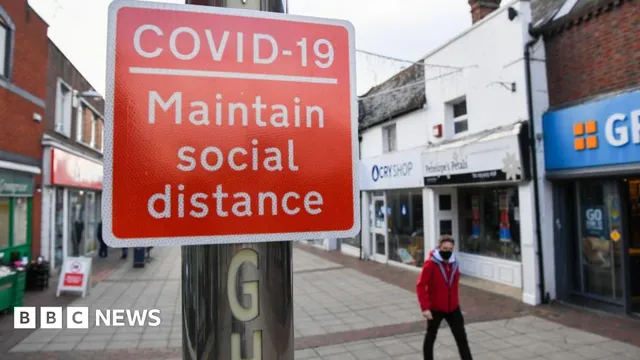
Five years after lockdown, Covid-19's death toll reaches 227,000 in the UK
2025-03-26 10:00- The UK enforced a nationwide lockdown in March 2020 to combat COVID-19, following rising case numbers.
- The lockdown led to significant changes in daily life, including increased loneliness and economic initiatives to support affected industries.
- Reflecting on the pandemic raises important questions about the lasting effects, social inequalities, and future workplace dynamics.
Express your sentiment!
Insights
In March 2020, the UK enacted nationwide lockdown measures to combat the spread of COVID-19 after seeing the devastation in Wuhan, China. Amidst growing numbers of cases and the emergence of known superspreaders, events like the Cheltenham Festival and a Liverpool football match contributed to increased infection rates. Following the lockdown, the country faced immense societal changes, marked by the closure of non-essential businesses and a surge in reported loneliness among adults. Between March 2020 and May 2023, almost 227,000 people died in the UK due to complications related to the virus. The government's response to the pandemic included the creation of temporary healthcare facilities, such as the NHS Nightingale Hospital, to accommodate the overflow of patients. Additionally, majo r economic initiatives like the 'Eat Out to Help Out' scheme were launched to revive the struggling hospitality industry. The UK's tiered restriction system, established in October 2020, sought to manage varying levels of infection across different regions. As the pandemic progressed, it became apparent that the lockdown's impact extended beyond health concerns, leading to significant changes in work dynamics and social interactions. While some individuals found opportunities for personal development, many also faced heightened mental health challenges due to isolation. The pandemic served to highlight existing social inequalities, with certain sectors of society disproportionately affected by the lockdown measures. As the anniversary of the lockdown approaches, discussions about the lasting effects of the pandemic continue. Many observers note that the flexibility once afforded by remote work arrangements has since regressed, as traditional norms reassert themselves. The ongoing reflection on the lockdown era raises questions about what lessons remain and how society can move forward in light of both the hardships endured and the adjustments that may have benefited certain individuals.
Contexts
The COVID-19 pandemic has profoundly impacted societies worldwide, with the UK experiencing significant shifts during the lockdown periods. Social interactions were drastically reduced, leading to a society that relied heavily on digital communication. Many individuals faced isolation, mental health issues, and increased anxiety due to the lack of physical contact and the uncertainties surrounding the pandemic. The government's response to the crisis included restrictions on movement, closures of non-essential businesses, and adaptations in education and work settings, transforming the daily lives of millions. The necessity for remote working solutions became evident, as companies adapted to maintain operations, leading to a surge in telecommuting and digital platforms for communication and collaboration. Economically, the lockdown had detrimental effects on various sectors, with hospitality, travel, and retail facing downturns. Job losses and reduced incomes emerged, pushing many households into financial strain. Government initiatives, such as furlough schemes, aimed to mitigate these effects but revealed an underlying dependence on state support. The pandemic also accelerated existing social inequalities; vulnerable populations, including low-income workers and marginalized communities, experienced significant challenges that highlighted the gaps in health and economic systems. Education was another area of upheaval, as schools transitioned to remote learning, impacting students' learning experiences and outcomes. The digital divide became more apparent, as access to technology varied significantly among families, affecting equitable education. Educators and students struggled to adapt to online platforms, often leading to diminished engagement and learning gaps. The long-term implications of disrupted education will likely resonate for years, calling for systemic changes to ensure resilience in future crises. Overall, the COVID-19 lockdown has reshaped the UK's social fabric, exposing vulnerabilities while also fostering innovation in communication and remote working technologies. As society continues to navigate the aftermath, it is crucial to address the issues of mental health, economic stability, and educational equity to build a more resilient future. The lessons learned from this unprecedented experience will be essential in guiding policymakers and communities to prepare for potential future challenges.